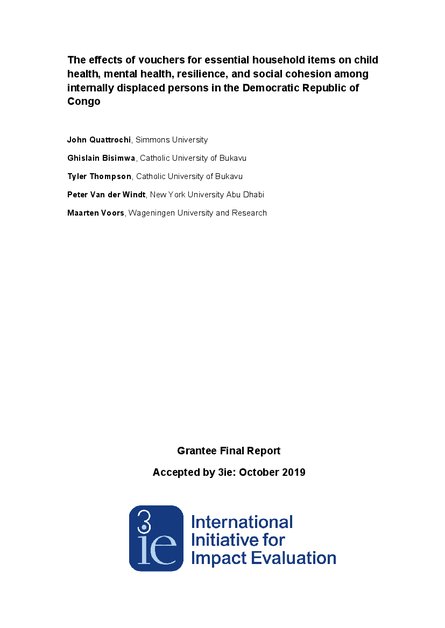
This study examined the effect on health and well-being of providing vouchers for essential household items (EHI) to recently displaced or returned persons in the Democratic Republic of Congo (DRC), and vulnerable host families.
DRC has experienced 20 years of armed conflicts and low state capacity. Ongoing conflicts in North and South Kivu and an increase in inter-communal clashes in southern and central provinces caused 4,480,000 people to be displaced from their homes. Most of these internally displaced persons (IDP) lack sufficient food, clean water, and sanitation facilities; and experience threats to their security.
The Rapid Response to the Movements of Population (RRMP) programme provided humanitarian assistance to vulnerable populations in North Kivu, South Kivu, Ituri, Tshopo, Haut Katanga, Tanganyika, and the Kasai region. This study involved a randomised controlled trial (RCT) of vouchers for EHI used at voucher fairs organized by RRMP for internally displaced people, supplemented by qualitative evidence from focus group discussions (FGD). The total voucher amount ranged from USD 55-90 per household, depending on the specific intervention’s budget and household size.
EHI was associated with substantial improvements in adults’ mental health, and moderate improvements in resilience and social cohesion. There was no increase in community tensions or conflict, and no impact on child physical health.
This report is an output from the Department for International Development’s ‘Humanitarian Innovation and Evidence Programme: greater use of evidence and innovation in humanitarian responses’ programme